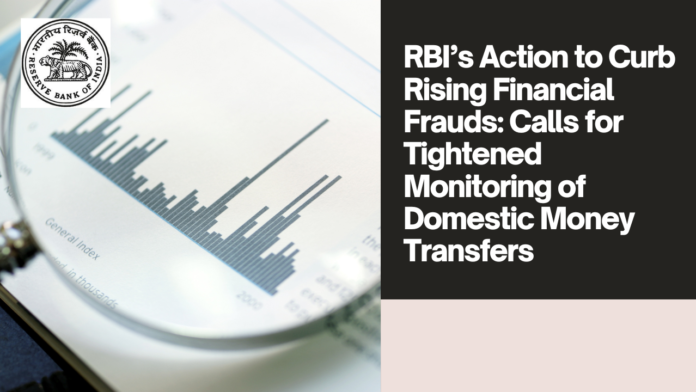In response to a dramatic surge in financial fraud cases across the country, the Reserve Bank of India (RBI) has issued stringent guidelines requiring banks and payment system operators to intensify monitoring of domestic money transactions. This move aims to tackle the escalating threat of scams and fraudulent activities targeting unsuspecting consumers.
According to a recent report by the Economic Times, the RBI directive mandates remitter banks to meticulously track essential details such as the name and address of beneficiaries for all cash pay-out services. Moreover, for cash pay-in services, banks and their business correspondents (BCs) are now obligated to register customers using verified mobile numbers and self-certified ‘Officially Valid Documents’ (OVDs), adhering to the Know Your Customer (KYC) norms.
Each transaction processed by a remitter will also be subject to Additional Factor Authentication (AFA), a measure aimed at bolstering security and minimizing unauthorized transactions.
RBI Governor Shaktikanta Das has emphasized the urgency for banks to intensify their efforts against mule accounts, often used as conduits for illicit financial activities. He underscored the importance of enhancing vigilance to combat the growing threat of digital frauds.
Earlier initiatives by the RBI include the establishment of a committee, led by industry veteran Abhaya Hota, to develop a digital public infrastructure platform aimed at enhancing defenses against payment frauds. This initiative forms part of broader efforts by the central bank to foster innovation and resilience within the financial ecosystem.
In addition, the RBI recently hosted its third global hackathon, ‘HaRBInger 2024 – Innovation for Transformation’, focusing on leveraging technology to devise effective solutions against financial frauds.
The regulatory action comes in the wake of alarming statistics disclosed in the RBI’s annual report for the fiscal year ending March 2024, revealing a staggering 334% increase in reported online fraud cases compared to the previous year. The total amount involved in these incidents soared to INR 1,457 crore in FY24 from INR 227 crore in FY23, underscoring the pressing need for robust safeguards in the digital payments landscape.
The RBI’s proactive stance underscores its commitment to safeguarding consumer interests and preserving the integrity of India’s financial system amidst evolving digital threats. As financial transactions continue to migrate online, stakeholders are expected to adapt swiftly to these regulatory measures to fortify defenses and ensure secure financial transactions for all consumers.




